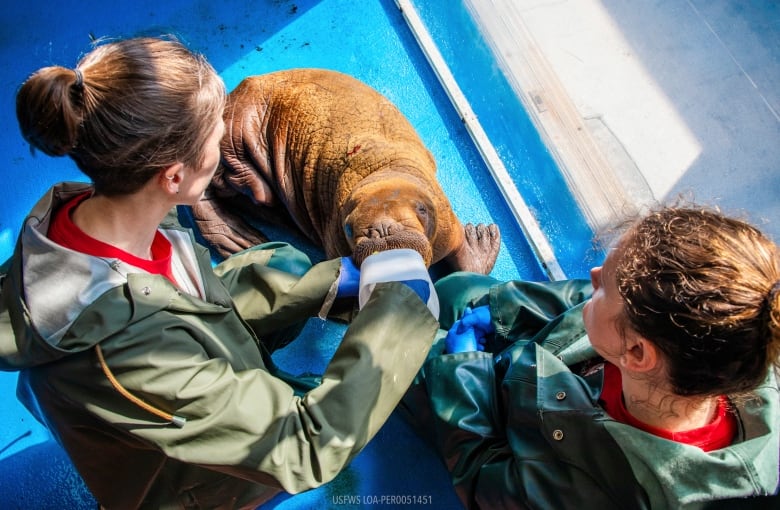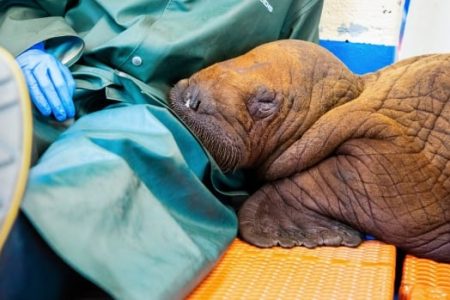A walrus calf found on its own kilometres from the ocean on Alaska’s North Slope last week and who received cuddles as part of his care after being rescued died on Friday.
“While often rewarding, wildlife rescue is inherently unpredictable and comes with it the possibility of great loss. For those that dedicate their lives to animal care, this is the hardest part of the job,” the Alaska SeaLife Center, the nonprofit research facility and public aquarium that was caring for him, said in a statement online.
The Pacific walrus calf, taken in by the centre on Aug. 1 after being found by oil field workers a day earlier, was struggling with a number of health issues, such as nutrient malabsorption. In the day before his death, he faced other complications, such as hypoglycemia and gastrointestinal problems, the centre said.
“Though our animal care teams worked tirelessly to provide round-the-clock critical care treatments, never leaving his side, the calf ultimately succumbed to his condition,” the centre said. A necropsy is planned.
The brown, wrinkly skinned baby was believed to be about one month old. The centre last week said that in an effort to mimic the near-constant care a calf would get from its mom, the walrus was receiving “round-the-clock cuddling” to keep him calm and to aid in his development. The centre described the cuddling as trained staff giving the walrus “the option to have a warm body to lean up against, which he has been taking advantage of almost constantly.”

The range of the Pacific walrus includes the northern Bering and Chukchi seas, but the walruses are occasionally observed in areas like the Beaufort Sea to the northeast, according to the Alaska Department of Fish and Game.
The calf was found about 6.4 kilometres inland from the Beaufort Sea, in Alaska’s extreme north. A “walrus trail,” or track, was seen on the tundra near a road where the walrus was found. But it was unclear how, exactly, he got there, the centre has said.

